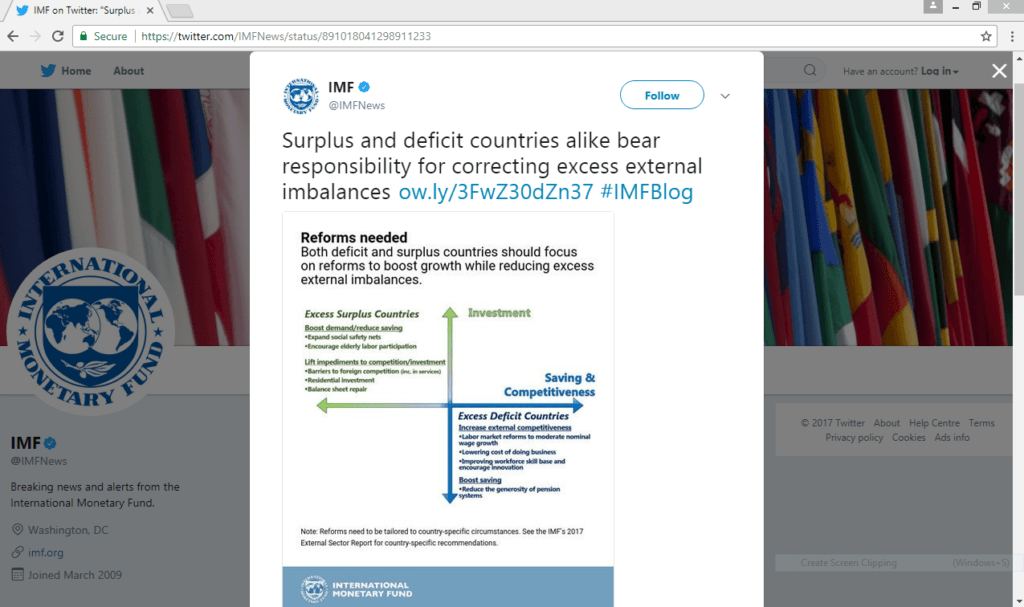Recently, The Economist had a cover story saying that surplus nations bear responsibility for global imbalances and weak economic growth. Now, the IMF is also advising surplus nations to expand domestic demand.
The IMF tweeted this, with a link to a new report (2017 External Sector Report) on global imbalances:
click to view the tweet on Twitter
As I have said before, this is the biggest concession to Keynes’ idea that surplus countries bear the responsibility.
In an article, The General Theory In An Open Economy, published in 1996, Paul Davidson says:
Keynes was well aware that the domestic employment advantage gained by export-led growth ‘is liable to involve an equal disadvantage to some other country’ (p. 338). When countries pursue an ‘immoderate policy’ (p. 338) of export-led growth (e.g., Japan, Germany and the NICs of Asia in the 1980s), this aggravates the unemployment problem for the surplus nations’ trading partners. These trading partners are then forced to engage in a ‘senseless international competition for a favorable balance which injures all alike’ (pp. 338-9). The traditional approach for improving the trade balance is to make one’s domestic industries more competitive by either forcing down nominal wages (including fringe benefits) to reduce labour production costs and/or by a devaluation of the exchange rate. Competitive gains obtained by manipulating these nominal variables can only foster further global stagnation and recession as one’s trading partners attempt to regain a competitive edge by similar policies.
